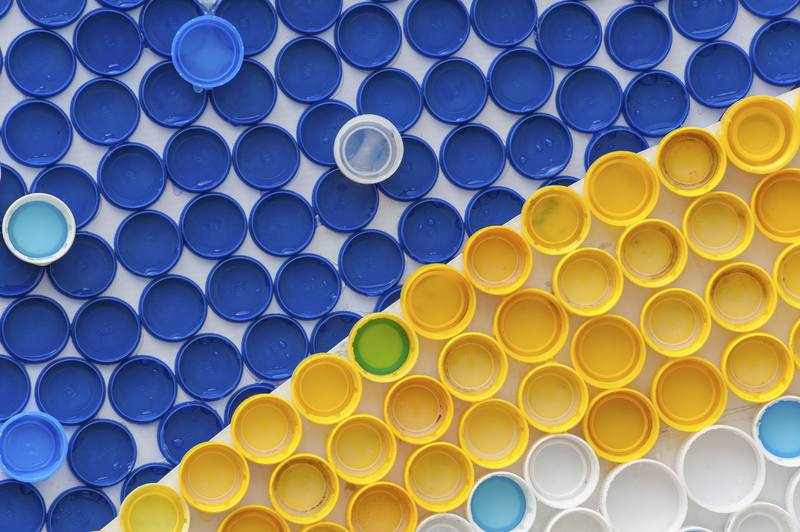Reduce, Reuse, and Recycle: Home Edition - The Complete Guide
Are you looking to embrace sustainability at home? Welcome to our comprehensive guide on reduce, reuse, and recycle--tailored specifically for households who care about the environment and want practical, actionable steps to make a real difference. In this guide, you'll discover innovative tips, impactful strategies, and the real benefits of incorporating these eco-friendly habits into your daily lifestyle.

What Does Reduce, Reuse, Recycle Mean in the Home?
The "Reduce, Reuse, Recycle" approach is a powerful, three-step method to minimize waste and lower the environmental impact of your household. Here's what each principle means:
- Reduce: Lower the amount of resources and products you consume.
- Reuse: Find new uses for items instead of throwing them away.
- Recycle: Process used materials to make new products, keeping them out of landfills.
Why Is Practicing "Reduce, Reuse, Recycle" Important at Home?
By following these principles, you're actively contributing to:
- Conserving natural resources
- Reducing pollution and greenhouse gas emissions
- Saving money on household expenses
- Creating a cleaner, safer environment for you and your community
How to Reduce Waste at Home: Practical Tips
1. Shop Smart and Minimize Packaging
Limit your purchases to only what you truly need. Choose products with minimal or recyclable packaging. Buy in bulk when possible to avoid individually wrapped items. Reusable shopping bags and produce sacks are essential tools in any zero-waste kitchen.
2. Say No to Single-Use & Disposable Items
Swap out disposable products--like paper towels, plastic plates, and cutlery--for reusable options made from bamboo, glass, or stainless steel.
3. Opt for Digital Over Paper
- Sign up for electronic bills and statements
- Use digital lists and notes instead of sticky notes or notepads
- Avoid printing unless absolutely necessary
4. Limit Food Waste
Food waste is a significant environmental issue. Plan meals, use leftovers creatively, and store food properly. Compost food scraps when possible to divert organic matter from landfills.
Creative Ways to Reuse Everyday Items
1. Upcycle and Repurpose Household Goods
- Glass jars can become food containers, flower vases, or even candle holders.
- Old T-shirts make excellent cleaning rags or tote bags.
- Mismatched socks? Turn them into dusters or fun pet toys.
- Use shipping boxes for storage or kids' crafts projects.
2. Host a Swap Party
Invite friends and neighbors to exchange gently used clothes, toys, books, or household items. It's a fun way to refresh your belongings while keeping items out of the landfill.
3. Donate or Sell Unwanted Items
Give new life to furniture, electronics, books, and clothing by donating them to local charities, shelters, or community centers. You can also sell items online using platforms like Facebook Marketplace, eBay, or neighborhood groups.
Mastering the Art of Recycling at Home
1. Know What's Recyclable in Your Area
Every municipality has different recycling guidelines. Check your local recycling program to see what materials are accepted. Common recyclables include:
- Paper and cardboard
- Plastic bottles and containers (look for recycling codes #1 and #2)
- Glass bottles and jars
- Aluminum cans and tins
2. Clean and Sort Recyclables Properly
Rinse containers to remove food residue and sort materials as required. Do not include plastic bags or styrofoam unless your program accepts them.
3. Compost Organic Waste
Start a compost bin for fruit and vegetable scraps, coffee grounds, eggshells, and yard waste. Compost enriches your garden and significantly reduces garbage volume.
4. Safely Dispose of Special Items
- Drop off batteries, electronics, light bulbs, and hazardous waste at designated collection points.
- Recycle plastic bags at supermarket collection bins.
Eco-Friendly Home Hacks for the Ultimate Green Lifestyle
Energy Efficiency Tips
- Switch to LED lightbulbs for lower energy consumption.
- Use smart thermostats to reduce heating and cooling waste.
- Unplug devices when not in use.
Water Conservation
- Fix leaks promptly to avoid water waste.
- Install low-flow showerheads and faucet aerators.
- Collect rainwater for outdoor plants.
Green Cleaning Solutions
Make your own cleaning products using ingredients like vinegar, baking soda, and lemon. These are just as effective and keep harsh chemicals out of your home and waterways.
Frequently Asked Questions on Home Reduce, Reuse, and Recycle
What Can I Recycle At Home?
Most homes can recycle cardboard, office paper, newspapers, magazines, plastic bottles, aluminium cans, and glass jars. Always check with your local recycler for a full list.
Is Composting Worth Doing If I Don't Have a Garden?
Yes! Even without a garden, you can still compost food scraps. Some cities have community composting programs, and compost can also be given to neighbors or community gardens.
How Much Difference Does Reducing, Reusing, and Recycling at Home Make?
These small changes add up. If every household implemented basic sustainable practices, millions of tons of waste would be kept out of landfills annually. You also decrease demand for raw resources and reduce pollution, making a real impact for future generations.

Your Step-By-Step Action Plan for a Greener Home
- Conduct a Waste Audit: Track your family's waste for a week to identify what you throw out most.
- Set Reduce, Reuse, Recycle Goals: Focus on the areas where improvement is easiest and most impactful.
- Engage Every Family Member: Get kids and partners involved to create habits that stick.
- Review and Adjust: Revisit your practices monthly to see what's working and tweak what isn't.
Conclusion: Your Home, Your Positive Impact
Incorporating the Reduce, Reuse, Recycle philosophy at home is more than a trend--it's a sustainable lifestyle that benefits you, your wallet, and the planet. Every eco-friendly action counts, whether it's reducing consumption, finding clever ways to reuse, or recycling diligently. Start small, stay consistent, and soon these sustainable habits will become second nature. Let your home lead the way to a cleaner, more sustainable future!
Ready to start your eco-friendly home journey? Challenge yourself to implement at least one new sustainable habit from this guide every week!
Share this article with your friends and family to spread the word about the importance of "reduce, reuse, and recycle" at home. Together, we can make a real, lasting difference.